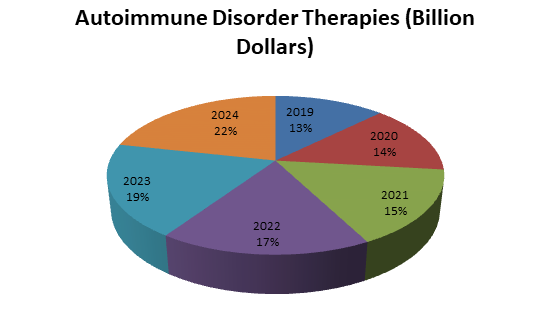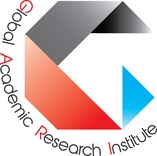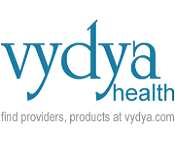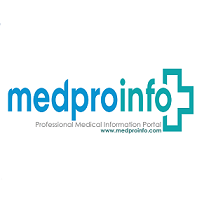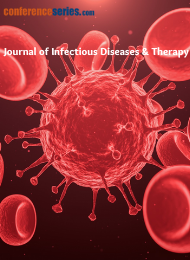Theme: Infectious Diseases Conf 2021: Future challenges for a disease free life
Infectious Diseases Conf 2021
Welcome Message
ME Conferences is pleased to welcome you to 16th World Conference on Infectious Diseases, Prevention and Control which going to be held on December 15, 2021 Webinar. It’ll be encompassing with the theme “Infectious Diseases Conf 2021: Future challenges for a disease free life”. The most objective of Infectious Diseases Conf 2021 is to produce a worldwide platform for Microbiologists, Bacteriologists, Virologists, Parasitologist, health care professionals, Professors, Medical administrators.
Abstract Submission:
Submit your abstract now and present your research in front of an international audience! Please make sure that your abstract must contains 250-300 words
Early Bird Registration:
Interested speakers and delegates register for the Conference and book your slot at Infectious Diseases Conf 2021. The early bird dates for the upcoming " Infectious Diseases Conf 2021” is going to be closed on or before November 30th, 2021. For group registrations and packages reach us at "meevents@memeetings.com".
Why to attend?
Leading scientists, researches, professionals and exhibitors from all across the world gathering at 16th World Conference on Infectious Diseases, Prevention and Control which is going to be held on November 08-09, 2021 Bali, Indonesia. where the organizing committee is gearing up for an exciting and informative Infectious Diseases Conf 2021 program including plenary lectures, symposia, workshops on a variety of topics, poster presentations and various programs.
Who attends?
- Microbiologists
- Bacteriologists
- Virologists
- Parasitologists
- Mycologists
- Pathologists
- Pharmacists
- Epidemiologists
- Dermatologists
- Neurologist
- Ophthalmologist
- Cardiologist
- Health Care Professionals
- Academic Professionals
- Medical & Pharmacy Companies
Track 1: Infectious Diseases, Prevention & Control
Infectiology is the subject of dealing with Infectious Diseases which deals with the diagnosis, control and treatment of infections. Infectious Diseases are also known as communicable diseases or transmissible diseases. Preventing healthcare-associated infections is done in the Infection- prevention & control which is an essential part of the infrastructure of health care. Infection control involves factors related to the spread of infections among patients, from patients to staff, from staff to patients, or among staff. Control of infectious diseases includes washing hands, cleaning, disinfecting, sterilizing, and vaccination.
- Chickenpox
- Common cold
- Flu (Influenza )
Track 2: Bacterial, Viral, Fungal Infections
The disease-causing agents in the organism their multiplication and the reaction of host tissues to the infectious agents and the toxins they produce results to infection. Infections are caused by parasites, virus, bacteria, fungi, etc. Viral infections involve different parts of the body or more than one body part at the same time which may be a runny nose, sinus congestion, cough, body aches etc. Few viral infections like herpes are painful. The pain of viral infections is often shown by the burning or itching on the respective part. One of the common bacterial infection is tuberculosis with the utmost risk factor. The symptoms of a bacterial infection are localized redness, heat, swelling and pain. Pain of the specific body part is the hallmark for bacterial infection. Fungi diseases can cause many different types of illnesses like asthma or allergies, rashes or infections on the skin and nails, bloodstream infections, yeast infections etc.
- Meningitis
- Pneumonia
- Nausea
Track 3: Coronavirus, SARS & MERS
Coronavirus disease (COVID-19) is an infectious disease spread in recent times. This disease can be spread, directly or indirectly, from one person to another. Respiratory diseases are the most common symptom observed in infected people. Older people and the people who are suffering from medical problems like cardiovascular disease, diabetes, chronic respiratory disease, and cancer are more likely to be effected. The information regarding the COVID-19 virus should be well informed for the prevention of the virus. Protect yourself and others from this infection. Three primary steps to be taken are washing your hands with water regularly or sanitizing by using an alcohol based sanitizer and do not touch your face. It’s important that you also practice respiratory hygiene and follow social distancing.
- Contagious Diseases
- Coronavirus Vaccine
- Tuberculosis
Track 4: Pediatric Infectious Diseases
An infectious disease related to children is termed as pediatric infectious diseases which are caused in children of different age groups. Pediatric infectious diseases experts deal with the infections occurring in children diagnose and treat to prevent these diseases by evaluating the symptoms. Common pediatric infections include Pneumonia- diagnosed in nearly 2% of infants < 1 year and in 4% of children aged 1 to 5 years. It is estimated that 90% of pediatric pneumonia are caused by viral agents. Otitis Media is an infection observed in children who live with the smoking adults. Innovative primary care is required for all the children.
- Diarrhea
- Dengue
- Neonatal Malaria
Track 5: STD (Sexually Transmitted Diseases) and Control
The condition passed from one person to another through sexual contact is referred as sexually transmitted disease (STD). It is caused by having unprotected vaginal, anal, or oral sex with someone who has the STD. Sexually transmitted infection (STI) or veneral disease (VD) is also called as sexually transmitted disease. STDs can be also be transmitted through sharing needles and breastfeeding. There are few types of STDs like Chlamydia, HPV (human papillomavirus), pelvic inflammatory disease and Syphilis etc.., HPV may lead to oral, cervical, vulvar, penile cancers.
- Human Immunodeficiency Virus (HIV)
- AIDS
- Gonorrhea
Track 6: Food Borne & Water Borne Infections
Consuming contaminated foods or beverages leads to foodborne illness. Causes for foodborne diseases are food contaminants, biological hazards include bacteria, viruses, and parasites. Chemical hazards include natural toxins and chemical contaminants. Physical hazards can include metals, plastic pieces, and broken glass. Majorly these diseases are caused from bacteria, pathogens and virus. The pathogenic micro-organisms like viruses and bacteria that are transmitted in water are responsible for waterborne diseases. Spread of these diseases can be done while bathing, washing, drinking water, or by eating food exposed to contaminated water.
Track 7: Emerging Infectious Diseases & Recent Outbreaks
Emerging infectious diseases are infections that appear in a population. Outbreaks are the occurrence of disease cases in an abundance of what would normally be expected. Ebola infection spreads by contact with blood and discharges that stay on dress, needles and syringes or other medical supplies used to treat Ebola-infected patients, direct contact with blood and secretions. Viruses transmitted basically by aedes mosquitoes, which bite during the day are responsible for Zika virus disease. Symptoms include muscle and joint pain, fever, malaise or a headache. Zika virus infection during pregnancy can result in infant to be born with Zika syndrome like microcephaly and other congenital syndromes. Miscarriage and preterm birth in pregnancy might be a cause of Zika virus. There is a high risk in pregnancy in the outbreaks.
- Ebola virus
- Zika virus
- West Nile Virus Infection
Track 8: Infection Control & Public Awareness
Infection control & public awareness is essential to educate patients, families, guests and careers about human services related infection, what activities medicinal services offices may have set up to ensure contaminations are counteracted however much as could reasonably be expected, and what they can do to restrain the spread of contaminations. Healthcare providers have a social duty to protect patients and prevent pointless damage. In life-threatening emergencies requiring immediate action, healthcare providers should measure the relative risk to patient life and decide the most proper disease control practice under those circumstances. The public should also be aware of the damage that can be caused by neglecting the treatment of infectious diseases.
- Antibiotic
- Antibacterial Agents
- Antifungal
- Antiviral Drugs
Track 9: Drug Interaction in Infectious Diseases
The medical harm which can be majorly prevented is drug interactions in the infectious diseases. Drug interactions represent a major risk to patients. The approved drug product labels for anti-infective drugs, direct-acting antivirals for HCV, HIV drugs unveil that drug interactions present a huge challenge for patients and their healthcare providers. Non-CYP enzymes, CYP enzymes, and changes in gastric pH, the ever-growing list of drug transporters may be the cause of interactions. There are other considerations which incorporate interactions due to food components, herbal medications and biological products.
- Bacteria
- Fungi
- Protoazoa
- Parasitology
Track 10: Infectious Diseases and Vaccines
Microorganisms are the main cause of infectious diseases. There are different types of pathogens like viruses, bacteria, fungi, and parasites. These infectious diseases can spread from one to another, the environment, from animal contact, or from insect bites. Fever, conjunctivitis, diarrhea, fatigue, and muscle aches are the symptoms of many infectious diseases. Vaccines prevent the infectious diseases like influenza, diphtheria, hepatitis b, measles, meningitis, serotype b infection, tetanus, rubella, yellow fever through immunization. Vaccine-preventable disease is referred to the infectious disease for which an effective preventive vaccine exists. If a person procures a vaccine-preventable disease and if he dies from it then the death is considered a vaccine-preventable death.
- Severe Acute Respiratory Syndrome
- Poliomyelitis (polio)
- Measles
Track 11: Infectious Diseases caused by Influenza virus
Influenza is commonly known as flu which is an infectious disease caused by the influenza virus. High fever, runny nose, sore throat, muscle and joint pain, headache, coughing, and feeling tired are the major symptoms which begin after 2 days of the virus attacks and can last more than 2 weeks. In children, symptoms can be diarrhea and vomiting which is referred to as "stomach flu" or the "24-hour flu”. It may include viral pneumonia, secondary bacterial pneumonia, sinus infections, asthma or heart failure.
Track 12: Respiratory and Blood Infections
The mortality rate of respiratory diseases and blood infections is 30-40% of the effected. Blood infections or blood poisoning occurs when a bacterial infection enters the circulation system from lungs or skin. BSI can be categorized as hospital-acquired, community-acquired depending on the site of receiving infection and hazard factors. Germs that can infect the respiratory framework can spread through saliva from the salivary glands and mucus which is also known as "respiratory secretions".
- Sepsis
- Burning or pain with urination
- Foreign bodies
Track 13: Pathology and Microbiology
Pathology is the study of the origin and consequences of infection or injury. The health practice of pathology is committed to the general study of disease and its processes as well as the specific diagnosis of disease, since pathologists are involved in exploring the clues to diseases and injuries by examining the organs, tissues, body fluids, cells, and molecules. The study of microorganisms such as bacteria, viruses, fungi and protozoa is known as microbiology. It consists of essential lookup on the biochemistry, physiology, telephone biology, ecology, evolution and medical factors of microorganisms. This consists of bacteria, archaea, viruses, fungi, prions, protozoa and algae, at the same time regarded as microbes. These microbes play key roles in nutrient cycling, biodegradation, bio deterioration, local weather change, meals spoilage, and biotechnology.
- Immunization
- Neuropathology
- Pathogenicity & Virulence
- Food Microbiology
Track 14: Epidemiology and Public Health
The department of science which offers with the diseases, viable manages of illness and elements associated to fitness are acknowledged as epidemiology. This helps to understand patterns and determinants of fitness and diseases. This is an essential thing for public fitness as it identifies the chance elements for illnesses and ambitions preventive fitness care. In easy phrases epidemiology is “the learn about of the distribution and determinants of health-related problems and activities in unique populace and additionally utility of the find out about to manage fitness problems”.
- Cancer Epidemiology
- Fatigue Disorders
- Clinical Epidemiology
- Epidemiology of Infectious Diseases
Global Biliary Stents Markets
The compound annual growth rate (CAGR) would be 5.2% in the span of 2020-2025, the global market for biliary stents reaches $203.1 million by 2025 from $157.9 million 2020. This report covers the products used by patient’s in general healthcare management. This study enables the readers to gain insights about the changing market scenario.
Autoimmune Disorder Therapies: Global Markets
The global market for autoimmune disorder therapies reaches from $53.2 billion in 2019 to $90.7 billion by 2024 in the period of 5 years with a compound annual growth rate (CAGR) of 11.2%. The report provides detailed information about autoimmune disorder therapies used in the treatment of diseases. The report includes a market projection for 2024 for key players.
Global Protein Assays Market: Impact of COVID-19
The global protein assays market was nearly $1.6 billion in 2019 and is estimated to increase up to $2.6 billion by 2024 at a compound annual growth rate (CAGR) of 10.0% for this period of 2019-2024.This report highlights the current and future market potential of protein assays and also provides a detailed survey about the scenarios and technological advancements.
List of Universities in the World:
- University of Tokyo
- Osaka University
- Grand Canyon University
- George Washington University
- Purdue University
- University of Exeter
- American University of Beirut
- Baylor University
- Harvard University
- University of Washington
- Columbia University
- University of North Carolina--Chapel Hill
- University of Toronto
- London School of Hygiene & Tropical Medicine
- University of Cambridge
- Johns Hopkins University
- Stanford University
- University of Oxford
- Yale University
- Massachusetts Institute of Technology
- University of Pennsylvania
- University College London
- University of Michigan--Ann Arbor
- New York University
- University of Copenhagen
List of Universities in Indonesia:
- University of Indonesia
- University of Gadjah Mada
- University of Andalas
- University of Hasanuddin
- University of North Sumatra
- Pattimura University
- Tanjungpura University
- Palangkaraya University
Societies related to infectious Diseases Worldwide:
- International Union of Microbiological Societies
- Federation of Infection Societies
- Canadian Society of Microbiologists
- Federation of European Microbiological Societies
- Pan-American Society for Clinical Virology
- European Society for Virology
- International AIDS Society
- International Society of Antimicrobial Chemotherapy
- Emirates Medical Association
- UAE Rare Disease Society
- Royal Health Awareness Society
- International Society for Infectious Diseases
- Infectious Diseases and Clinical Microbiology Specialty Society of Turkey
- Bulgarian Association for Prevention and Infection Control
- Nordic Society of Clinical Microbiology and Infectious Diseases
- European Society for Clinical Virology
- Turkish Society of Clinical Microbiology Infectious Diseases
- Albanian Society of Infectious Disease
- Danish Infectious Disease Society
- French Infectious Disease Society
- German Society of Infectious Diseases
- Scottish Microbiology Association
- Swedish Society of Infectious Diseases
List of Hospitals in World:
- University Hospital Austral
- RP Medical Center, British Hospital
- St Vincent's Hospital
- The Royal Children's Hospital
- Royal Prince Alfred Hospital-Immunology
- John Hunter Hospital Immunology & Infectious Diseases Unit
- Canberra Hospital, John James Medical Centre
- Kuopio University Hospital
- Turku University Hospital
- CHP Saint-Grégoire
- American Hospital of Paris
- University Medical Center Freiburg
- Chania General Hospital
- Ioannina University Hospital
- Karditsa General Hospital
- Chanre Rheumatology & Immunology Center
- Apollo Gleneagles Hospitals
- Continental Hospitals
- Fortis Memorial Research Institute
- St Marys Hospital
- Avcilar Hospital
Europe:
Infectious Diseases Society of Ireland, The International Society for Neglected Tropical Diseases, HealthCare Infection Society, Society of Infectious Disease; Spanish Society of Pediatric Infectious Diseases, Spanish Society of Pediatric Clinical immunology and Allergy, Spanish Association of Pediatric Primary Care, British Society for Immunology, European Society for Immunodeficiency.
USA:
Canadian Association for Clinical Microbiology and Infectious Diseases, National Institute of Allergy and Infectious Diseases, Tropical Pathology & Infectious Diseases Associations, International Society for Infectious Diseases.
Asia Pacific:
Victorian Infection Control Association, Victorian Infection Control Professionals Association, Infection Control Practitioners Association of Queensland, Infection Control Association of South Australia, Infection Control Association of Western Australia.
Middle East:
The Arab Society of Infectious Diseases and Antimicrobials, The Egyptian Society for Tropical Medicine, Infectious Diseases and Parasites, Egyptian Society of Immunologists, Genetic Diseases Society, Molecular Biology Society, Emirates Neurology Society.
Conference Highlights
- Infectious Diseases Prevention & Control
- Bacterial, Viral, Fungal Infections
- Coronavirus, MERS & SARS
- Pediatric Infectious Diseases
- STD (Sexually Transmitted Diseases) and Control
- Food Borne & Water Borne Infections
- Emerging Infectious Diseases & Recent Outbreaks
- Infection Control & Public Awareness
- Drug Interaction in Infectious Diseases
- Infectious Diseases and Vaccines
- Infectious Diseases caused by Influenza virus
- Respiratory and Blood Infections
- Pathology and Microbiology
- Epidemiology and Public Health
To share your views and research, please click here to register for the Conference.
To Collaborate Scientific Professionals around the World
| Conference Date | December 15-15, 2021 | ||
| Sponsors & Exhibitors |
|
||
| Speaker Opportunity Closed | |||
| Poster Opportunity Closed | Click Here to View | ||
Useful Links
Special Issues
All accepted abstracts will be published in respective Our International Journals.
- Journal of Infectious Diseases & Therapy
- Air & Water Borne Diseases
- Journal of Bacteriology & Parasitology
Abstracts will be provided with Digital Object Identifier by







